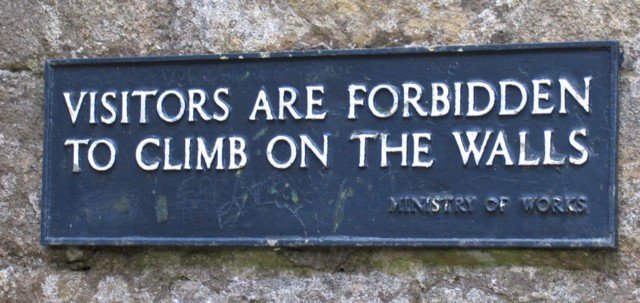What Safety and Security Should I Think About?
What Safety and Security Should I Think About? As a world city, London prioritizes safety. Facing diverse threats, from terror to petty crime, constant vigilance is crucial. This overview examines the city’s layered security: visible policing, advanced tech, and grassroots efforts, all aimed at protecting its diverse population and international visitors.
London is consistently ranked as one of the world’s most popular tourist destinations, a vibrant and welcoming metropolis that attracts millions of international visitors each year. Naturally, a common and crucial question for any prospective traveller is: “Is London a safe place for tourists to visit?” The straightforward answer is yes; London is generally a very safe city for tourists, with a strong police presence and robust security infrastructure, especially in major tourist areas. However, as with any vast global city, visitors should exercise standard precautions to safeguard against opportunistic crime like pickpocketing, ensuring a secure and enjoyable visit.
What Safety and Security Should I Think About?
Public Safety:
London maintains a visible police presence in tourist areas, offering reassurance and assistance to visitors who may be unfamiliar with the city or require help with directions, information, or in the event of an emergency. This proactive approach helps to create a secure and welcoming environment for those exploring London’s attractions.
Additionally, CCTV cameras are widespread throughout the city, serving to enhance public safety and act as a deterrent to crime. These cameras provide valuable surveillance, aiding in the prevention of incidents and assisting law enforcement in the event that they do occur, contributing to the overall sense of security for both tourists and residents.
Personal Safety:
When enjoying London’s bustling tourist hubs, prioritising personal safety is simple yet effective. Remain aware of your surroundings, especially in large crowds, and keep bags zipped and valuables out of sight. Stick to well-lit, populated areas after dark and use officially licensed transport. By taking these basic precautions, visitors can confidently explore the city, focusing on its incredible sights and experiences with complete peace of mind.
Transport Security:
The city’s public transport system, encompassing buses, trains, and the Tube, operates under strict security protocols designed to ensure the safety and well-being of all passengers. These protocols include regular patrols by transport staff and police, as well as the use of advanced surveillance technology.
What Safety and Security Should I Think About?
Vigilance:
Travelers are strongly encouraged to remain vigilant and aware of their surroundings, and to promptly report any suspicious behavior or unattended items to transport personnel or law enforcement. This collaborative approach, where both authorities and the public play an active role, is crucial in maintaining a safe and secure environment for everyone using London’s extensive public transport network.
Emergency Services:
For any visitor to London, having key contact numbers on hand is essential for peace of mind and swift assistance. In any emergency, dial 999 to immediately reach the police, fire brigade, ambulance, or coastguard. For a less critical situation that still requires police attention, such as a minor theft or to report a crime that is not in progress, use the non-emergency number 101. For general health advice that isn’t a life-threatening emergency, contacting 111 will connect you to the NHS for guidance. It is also highly advisable for international tourists to save the contact details for their country’s embassy or consulate in London, should they require consular assistance.
Tourist Information Centres:
Tourist information centers across London provide guidance, maps, and resources to help visitors navigate the city safely. These centers also offer advice on staying secure and avoiding common tourist scams.
Official Visitor Centres
- City of London Information Centre: opposite St Paul’s Cathedral, this is the only officially recognized tourist information centre in central London.
- Transport for London (TfL) Visitor Centres: These are situated within major transport hubs.
- Piccadilly Visitor Centre: In Piccadilly Circus Underground Station.
- Victoria Visitor Centre: Opposite Platform 8 at Victoria Railway Station.
- Paddington Visitor Centre: Opposite Platform 1 at Paddington Railway Station.
- King’s Cross Travel Information Centre: Located at King’s Cross/St Pancras.
Low Crime Rate:
While no major city is entirely crime-free, London’s overall crime rate is notably lower than many other popular international destinations. It ranks favourably when compared to iconic cities like New York, Paris, and Barcelona, particularly regarding violent crime. This strong record of public safety, underpinned by a visible police presence, helps ensure millions of tourists enjoy a secure and welcoming visit each year.
Tourist Police:
London doesn’t have a dedicated “tourist police” force in the same way some other countries do. The Metropolitan Police Service, alongside the City of London Police and the British Transport Police, is responsible for the safety of everyone, including tourists. These forces have a visible presence in popular tourist areas to deter crime and offer assistance. They also provide online resources with safety advice tailored to visitors
Safe Accommodation:
Hotels and accommodations in London adhere to strict safety standards, offering secure lodging options for tourists.
When choosing safe accommodation in London, prioritize reputable hotels or serviced apartments, often located in well-policed areas. Neighborhoods like Kensington, Notting Hill, and Fitzrovia are known for their low crime rates and tranquil, well-lit streets. Always check reviews, and for added security, ensure your accommodation has secure entry and in-room safes. Staying in central, busy areas is also generally a safe option, especially at night
Scam Awareness:
For tourists in London, maintaining scam awareness is crucial for a safe visit. Be wary of common ploys like distractive petitions, ‘gold’ ring scams, or unsolicited help at ATMs. Only use official black cabs or licensed minicabs, and be cautious of too-good-to-be-true deals. A healthy dose of skepticism and securing your valuables will thwart most attempts, ensuring your trip remains enjoyable and theft-free.
Travel Insurance:
Tourists are encouraged to obtain comprehensive travel insurance covering medical emergencies, trip cancellations, and personal belongings, providing added security and peace of mind during their visit.
Wi-Fi:
London’s public Wi-Fi networks, while convenient, can be insecure. Many are unencrypted, making data vulnerable to cybercriminals through “man-in-the-middle” attacks or by setting up fake hotspots. To stay safe, always use a VPN to encrypt your traffic, avoid accessing sensitive information like banking or email, and ensure websites use HTTPS before entering personal data. Turning off auto-connect and file-sharing settings is also crucial.
Caution:- Be aware about using public WI-FI, when trying to pay by Credit/Debit Card online for tickets etc. Consider purchasing International Data from your phone network, or a Secondary Sim card when you arrive, and also using a VPN(Virtual Private Network).
What Safety and Security Should I Think About?
For official tourist safety and security information for London, UK, visit the GOV.UK Foreign Travel Advice page for government guidance and the Metropolitan Police and City of London Police websites for specific crime prevention tips, especially on pickpocketing and street robbery.
Summary:
When visiting London, prioritize awareness and prevention. Like any major city, London has areas where petty crime, like pickpocketing, is prevalent, especially in tourist hotspots and on public transport. Key safety considerations include:
- Be aware of your surroundings: Especially in crowded areas.
- Protect valuables: Keep belongings secure, and avoid displaying expensive items.
- Use official transport: Rely on London’s public transport (the Tube, buses) and licensed taxis.
- Be cautious of scams: Avoid unofficial ticket sellers and be wary of distractions.
- Know emergency numbers: 999 for emergencies, 101 for non-emergencies.
- Stay informed: Check for travel advisories and local news.
By staying vigilant and taking precautions, you can enjoy a safe and memorable trip to London.
What Safety and Security Should I Think About?
What Is The Electrical Standard in UK?
Understanding The UK Electrical Standard. Gaining a comprehensive understanding of the prevailing electrical standards within the United Kingdom is of paramount importance for tourists and international visitors, primarily to guarantee the operational safety and prevent potential damage to their personal electronic devices and appliances throughout the duration of their stay.
Neglecting to acknowledge these standards can lead to electrical hazards or the inability to utilize one’s devices. Therefore, a clear and concise synopsis of the key aspects of the UK’s electrical system is provided below to equip travelers with the necessary knowledge for a safe and convenient experience:
Voltage and Plug Type:
Within the United Kingdom, the standard electrical outlets are engineered to deliver electrical power at a nominal voltage of 230 volts alternating current (AC), operating at a consistent frequency of 50 Hertz (Hz). This voltage and frequency are the established norms for the national power grid. Furthermore, the specific type of electrical plug predominantly utilized throughout the UK is the British Standard (BS 1363) three-pin plug. This distinctive plug design is characterized by the presence of three rectangular prongs arranged in a triangular configuration.
Notably, one of these prongs serves as an essential grounding or earthing connection, which plays a crucial role in ensuring electrical safety by providing a path for fault currents to safely dissipate, thereby significantly reducing the risk of electric shock. The remaining two prongs are the live and neutral conductors, completing the electrical circuit necessary for powering devices. This standardized plug and socket system is consistently employed across residential, commercial, and industrial settings within the UK.
Adapter Requirement:
Tourists and international visitors hailing from countries that employ differing electrical plug configurations will find it absolutely necessary to acquire a suitable plug adapter to establish a functional connection between their personal electronic devices and the standard UK power outlets. These essential adapters effectively bridge the compatibility gap between foreign plug types and the UK’s BS 1363 three-pin socket system, enabling the safe and efficient use of electronic equipment.
Fortunately, universal plug adapters, which are ingeniously designed to accommodate a wide array of international plug types, are readily and conveniently available for purchase at various locations frequented by travelers. These include airport shops, well-stocked electronics stores, and numerous online retailers, ensuring that visitors have ample opportunity to procure the necessary adapter either before their departure or upon their arrival in the United Kingdom. Possessing the correct plug adapter is a small but crucial step in ensuring a seamless and hassle-free experience when using electronic devices during one’s visit to the UK.
Voltage Conversion:
Some electrical devices, particularly those designed for use in countries with lower voltage standards (e.g., 110-120 volts), may require a voltage converter or transformer to safely operate in the UK. It’s essential to check the voltage requirements of each device before plugging it in.
Safety Standards:
Electrical appliances and devices sold in the UK must comply with stringent safety standards set by regulatory bodies such as the British Standards Institution (BSI) and the Institution of Engineering and Technology (IET). Tourists should ensure that any electrical items they purchase or use during their visit bear the appropriate safety certifications.
Travel Hair Dryers and Chargers:
Many hotels and accommodations in the UK provide hair dryers and electrical outlets suitable for charging electronic devices. However, tourists should verify compatibility with their devices and may still require plug adapters or voltage converters for certain appliances.
Water and Electricity Safety:
Tourists should exercise caution when using electrical devices near water sources, such as sinks and baths, to avoid the risk of electric shock. It’s advisable to unplug devices when not in use and to handle them with dry hands.
What Is The Electrical Standard in UK?
Summary:
By familiarizing themselves with UK electrical standards and taking appropriate precautions, tourists can safely use their electronic devices and appliances during their visit, ensuring a comfortable and hassle-free travel experience.
Other Posts Related to This Article:-
- How To Respect Customs, Traditions & Languages When Visiting London.
- What Is The Tipping Custom In London & Do I Need Travel insurance?
- Best Time To Visit London and What To Pack?









